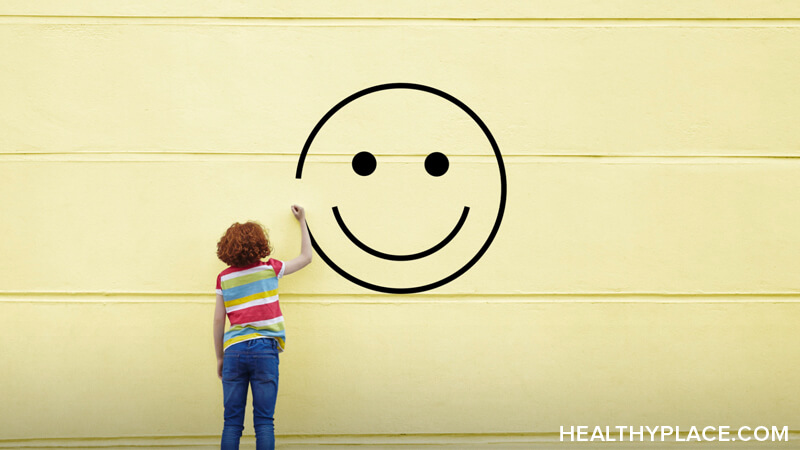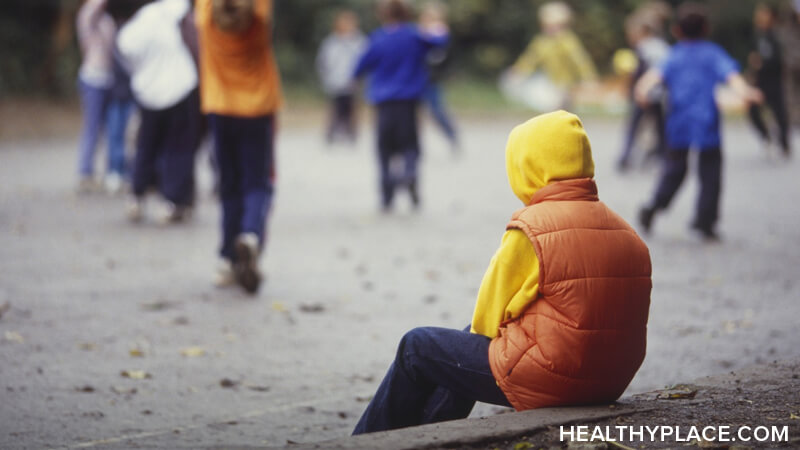 Step-by-step guidelines for overcoming depression and finding happiness. Why people become depressed and ways to overcome depression. Great article!
Step-by-step guidelines for overcoming depression and finding happiness. Why people become depressed and ways to overcome depression. Great article!
Remember sadness is always temporary. This, too, shall pass.
Can't, If, When, and But never did anything.
Trials give you strength, sorrows give understanding and wisdom.
Depression involves sadness, pessimism, a preoccupation with personal problems, and perhaps feeling sorry for one's self, anguish, crying, and hopelessness. Depressed people often lose interest in many activities and social contacts because of loss of pleasure in and enthusiasm for their usual activities. They may become apathetic or socially withdrawn. Low energy, chronic tiredness, excessive sleeping, and insomnia are common. Other possible symptoms of depression include poor appetite, heavy eating, weight loss or gain, feelings of inadequacy or worthlessness, anxiety, regrets, decreased productivity, poor concentration, or recurrent thoughts of death or suicide. Four out of five cases of severe depression clear up without treatment within six to nine months, but half of the people with severe depression experience it again later.
People often become depressed about marital, romantic, or family problems. For example, one study found an unhappy marriage increased the risk of clinical depression 25 times over untroubled marriages. A personal loss often triggers depression: divorce, separation, loss of a job, the end of a love relationship, physical or mental problems from old age, the death of a loved one, etc. Many stressful events or major changes may also help bring on depression. Going away to college or moving far away from family and friends after getting married may lead to depression. No matter how much you wanted to have a child, the resulting loss of freedom may cause depression. When children grow up and leave home, you may become depressed. Retirement can lead to depression because of loss of work activities to fill the day and loss of friendships with coworkers.
Depression may occur without any loss or great stress to trigger it, however. Personal problems often lead to depression. The chronic use of alcohol or other drugs often leads to mood swings, personal problems, and depression. Using alcohol or other drugs to improve your mood is especially risky because addictive substances often intensify pre-existing mood or personality problems. Even prescribed medications may lead to severe depression.
 Ways to Overcome Depression
Ways to Overcome Depression
There are many effective ways to overcome depression. Fortunately, we can control our thoughts and feelings much more than most people realize. With enough work and effort, you can change habitual thoughts and feelings. First, however, if you are on any medicines, check with your doctor to see if a medicine may be causing your depression. A surprising number of medicines can do this, including many tranquilizers or sleeping pills, many high blood pressure medicines, hormones such as oral contraceptives, some anti-inflammatory or anti-infection drugs, some ulcer medicines, etc. Changing your prescribed medications may be all you need to eliminate depression.
Predicting Effectiveness of Antidepressants
Some severely depressed people need medicines to control their depression, but most people can conquer depression by following the suggestions in this excerpt. Even those people on prescribed medicines for depression will benefit from the suggestions here. If you feel severely depressed, most psychiatrists will use trial and error to find a drug that will help you. But certain blood and urine tests can detect biological depression, pinpoint which drugs are most likely to be effective, and reduce the risk of depression recurring by determining when the biological imbalance ends. For the fastest, most effective treatment of severe depression, find a psychiatrist who will use the dexamethasone suppression test (DST), the thyrotropin-releasing hormone (TRH) stimulation test, and the MHPG urine test. In both the DST and TRH stimulation test, the psychiatrist administers a hormone and monitors your body's response with blood tests. Using these tests finds imbalances and predicts the effectiveness of antidepressants. The MHPG urine test helps in choosing among antidepressants. The tricyclic dose-prediction test, involving a test dose of antidepressant and a blood test 24 hours later, predicts therapeutic dose, minimizing dose changes and side effects. When psychiatrists prescribe an antidepressant, they should order one or more blood tests to make sure your blood level of the drug is in the effective therapeutic range.
Develop Interests, Participate in Activites
Perhaps one of the most common reasons for depression is a lack of enough interests and activities. A small number of them tends to become routine and often boring. Interests and activities are very important in mental health, contributing to self-esteem and happiness. They give satisfaction, help make you feel good about yourself, and keep your mind off problems and negative thoughts and emotions. Simply cultivating them can sometimes cure depression, grief, addiction, explosive anger, anxiety, excessive worrying, or guilt, especially if you do the activities whenever you feel the negative emotion. They are also important social skills that give you pleasant and interesting things to talk about, improving your conversation skills and helping in making and keeping friends. Children with many interests and activities are less likely to have behavior problems, including alcohol or drug abuse, teenage pregnancy, violence, and crime later on. Their wide variety of interests keep them busy and out of trouble and naturally build different circles of friends, so they are less likely to be influenced by the wrong kind of friend.
There are three main kinds of helpful interests and activities: pleasurable, constructive, and altruistic. Of course, pleasurable activities give us enjoyment. We may do them just for fun or relaxation. Constructive activities produce or accomplish something and give a sense of pride. Examples include getting things done around the house, working on a project, practicing a skill, or studying a subject that interests you. Altruistic activities help other people. Examples include teaching a friend a craft, helping sick or old people, or volunteer work. Altruistic activities give companionship, gratitude from other people, and a sense of pride. Helping others is one of the best ways to lift yourself spiritually. Helping less fortunate people can also give a healthy sense of perspective. For example, your personal problems may appear trivial after a day volunteering with mental patients or dying cancer patients.
Having only a few interests and activities doesn't help very much in fighting boredom, depression, or other problems. You can best improve mental health by developing and practicing many of them until you do them well. Truly happy and productive people love life and often enjoy 50 to 100 of them. Strive toward the ideal of the Renaissance man-a well-rounded person with broad social, cultural, and intellectual interests and skills. You may find it difficult to think and come up with new interests and activities. We often forget many we once enjoyed or we were once curious about. Depressed people are especially likely to have forgotten previous interests and activities. Go to the library and ask the librarian for help in finding a list of interests and activities, or use the list in the book Family Desk Reference to Psychology.
Of course, depressed people often find it very difficult to motivate themselves and often reject new interests and activities without trying them or after one attempt. But even happy people don't enjoy interests without first cultivating them. We often don't enjoy a new activity right away. Instead, it may take time to become accustomed to a new activity and for interest and pleasure to grow. You may need to learn to relax in the new situation or to develop some expertise or skill before you can learn to enjoy it. Don't reject new activities before giving them a chance. Try any new activity at least several times, with an open mind. Motivate yourself with rewards for engaging in new activities and getting things done. You might decide you must buy your groceries and finish all your laundry before you take a nap. If you smoke cigarettes, you might avoid smoking until you try a new activity or accomplish something. Ask friends and family members to help motivate you, too.
Keep A Positive Attitude
Negative thinking habits play a very important role in depression. Research shows depressed people tend to minimize their accomplishments, talents, and qualities. They tend to see themselves as inferior and incompetent, despite being comparable to other people in qualities and skills. Their thinking habits focus on or exaggerate problems and faults and minimize or fail to see the good things in their lives. They tend to recall negative things more often than positive things, and they tend to minimize, overlook, or forget feelings of pleasure in their lives. They may feel preoccupied with loss or personal problems, perhaps wallowing in thoughts about self-pity, inability to cope, or escaping their problems.
Happy people experience failure, disappointment, rejection, negative emotions, pain, and great sorrows, too, just like depressed people. But happy people keep a positive attitude by gracefully accepting sadness and suffering as normal parts of life, while doing what they can about their problems. This also makes them more pleasant to be around and improves their social lives. Part of happiness is a courageous choice of loving life in the face of suffering, a chosen position or view of things.
Expecting dissatisfaction and failure, depressed people often give up easily and thereby bring on failure. Happy people know that every failure is a learning experience that can lead to success if they refuse to give up. Starting a successful business, for example, may take many years of learning what doesn't work. After causing their own failure by giving up, depressed people often blame their problems on fate, bad luck, other people, circumstances, or their incompetence. They may passively resign themselves to problem situations and let the problems continue. Their pessimistic thinking leads them to reject many enjoyable activities. Sometimes their lack of motivation involves not knowing what to do to improve things or fear of making the needed changes.
Are Your Expectations Realistic?
Reexamine your expectations or priorities in life and, if necessary, adjust them to suit reality better. Depressed people often think they can't be happy without certain things, such as a lover, a particular lover, material possessions, a much higher income, etc. You can eliminate such problems by changing your negative thinking and learning to accept the situation. Certain situations or troublesome people simply won't change. When you can do something about a problem, however, you should. For example, you may need to leave an alcoholic spouse or to go to school to prepare for a better job.
Get to Work on Personal Problems
Work on your personal problems, using small steps to make sure you avoid becoming overwhelmed. Work on only one or two simple things at a time, breaking large or complex problems into goals you can easily accomplish. Use rewards, friends, family, and support groups. What negative or stressful situations exist in your life? What can you do about them? Don't give up and allow your problems to continue. Brainstorm solutions and ask other people for ideas. Some depressed people reject all the possible solutions, finding reasons to eliminate each one as unacceptable, unpleasant, or unworkable. Don't let negative thought habits interfere with problem solving. Keep an open mind to all possible solutions.
Take a long, hard, honest look at yourself for personal problems, paying particular attention to repeating problems in your life. Do you need more interests and activities to avoid boredom and keep your mind off negative thoughts? If you avoid confrontations and bury your anger at mistreatment from others until you explode, work on assertiveness and expressing your anger in constructive ways. Are some people inconsiderate, unkind, overly critical, or overly hostile toward you? If certain people in your life contribute to your depression by the things they do, you may need to become more assertive with these people, to reduce your contact with them, or even to eliminate them from your life. Do you abuse alcohol or other drugs?
Tackle Your Bad Habits
Change bad habits that keep you depressed. Work on replacing negative thoughts with positive thought alternatives every day. If you tend to blame circumstances or other people for your depression, combat these thoughts of helplessness by reading or by repeating, "I made myself depressed over that. I didn't have to respond that way." Use assertiveness skills, good problem-solving skills, or more positive thinking the next time a similar situation arises. If you often assume other people think badly of you, read or repeat "I can't read other people's minds." Humor also helps a great deal in facing life's problems without drowning in negativity.
If you find it difficult to motivate yourself, stop prejudging and avoiding activities because you believe you wouldn't enjoy them or wouldn't be good at them. If you force yourself to start, you will often find that you do get some pleasure from and gain some skill in the activity after all. Don't let negative thoughts about many activities block your improvement and interfere with your happiness. You probably have negative thoughts about lacking energy, not being in the mood, hating exercise, etc. Replace these each time they occur with more positive, helpful thoughts such as: "I'll feel more like it once I start," "Let's just give it a try. Who knows, maybe I'll really like it," or "Why sit here and feel bored? I'll try ..."
Depressed people tend to overlook and discount feelings of pleasure and accomplishment, both in trying new activities and in many other areas of life. Learn to recognize these feelings. Develop these slight feelings and take pride in your activities. Counter negative reactions with positive alternatives such as: "Hey, that wasn't bad. I enjoyed it some. Maybe if I try it a few more times, I'll really like it," and "Not bad on my first try, but I'll get better with practice. That was kind of fun." Repeat those activities that give you slight feelings of accomplishment or pleasure. You can develop them into very rewarding activities.
Develop Friendships and Relationships
Good social skills and a good network of friendships ranging from casual to intimate ones help prevent depression after life stresses and speeds recovery from depression. Happy people generally have several very close friends and a number of other friends, some closer than others, with whom they can share different activities and parts of themselves. Do you need to reach out and make more friends?
Marital relationships are often important in depression. An appreciative, complimentary, supportive marital relationship can protect you from depression despite challenging life stresses, and as noted previously, marital problems often lead to depression. Work on increasing the positive behaviors in your marriage. Perhaps your marriage lacks a confiding relationship of sharing feelings and receiving acceptance, understanding, and emotional support from each other? Sharing feelings is much more important than simply sharing facts with your spouse. Ask your spouse to compliment you more and to say many of the things normally taken for granted, to show appreciation for the routine things you do every day. Learn about good marital skills and put them to use in your life.
Research shows depressed people are more likely than other people to interact with their spouses and children in hostile or angry ways. Do you yell, sulk, bring up old resentments from the past, nag, insult or use negative labels, make demands or ultimatums, or criticize with overgeneralizations? Do you alienate other people with communication problems such as avoiding important issues, blaming, or assuming you know what another person thinks? Another communication problem is bringing up too many problem issues without focusing on solutions, one at a time. Of course, everyone does these things at times, but bad habits in these areas increase stress and can destroy intimacy with your loved ones. Learn about and practice good communications skills.
Some depressed people long for friendship and love but alienate other people with negativity or with clinging neediness because of lack of enough socializing or interests and activities. Many depressed people make the mistake of hunting for romance to satisfy their unhappiness, poor self-esteem, or other problems. A preoccupation with finding romance is generally frustrating and disappointing. Yearning for a romance to make you happy is looking in the wrong place for happiness. Although finding a mate can help make you happy, your best chance of finding a mate depends on developing a different set of priorities.
Looking for a romance to save you from your loneliness and unhappiness is a rather desperate, needy search that alienates other people. Your personality cannot sparkle with this kind of focus in your life. Instead, focus on enjoying the single life, meeting people, and making friends. Accept you may be single for a long time and get on with your life. You need a wide variety of interests and activities, and you need to enjoy and value your friendships. Having these priorities will make you more pleasant, give you practice in socializing, and increase your chances of finding romance. With interests and activities and a good network of friends and acquaintances, your painful longing will cease.
A common, very painful mistake in dating is to become completely engrossed in a person who shows little true concern for your needs and feelings. Perhaps your partner only wants to see you occasionally or when other relationships end. Perhaps your partner is selfish and repeatedly inconsiderate of your feelings or needs. Staying in any unfulfilling relationship ties up much of your time and deepest emotions. The danger in staying in an unfulfilling relationship is you become accustomed to unhappy situations, making you an easy target for people who will use you. Unfortunately, plenty of people will use you if you let them. Your time and emotional energy are better spent developing interests, activities, ways of meeting people, and a more suitable love relationship. Never settle for less in a relationship-hold out for what you really want.
If, despite an unfulfilling relationship, you sometimes resort to sexual activity to relieve negative emotions such as loneliness, boredom, depression, or anxiety, plan more constructive ways of dealing with these emotions. Keep busy, avoid the problem person, make new friends, find better ways to have fun and to relax, and practice rejecting the person's advances in behavioral roleplays. If lowered inhibitions due to drinking alcohol or using other drugs play a role in your continuing an unfulfilling relationship, plan ways to avoid this problem or work on your addiction.
Figure Out Why You're Depressed
If you don't know why you feel depressed, look for clues by comparing and contrasting your life now with a happier time in your life. The best way to understand your depression is to study it carefully. Use the scale of zero to 100 to rate your depression many times throughout the day, and observe and record all the thoughts, circumstances, and events associated with it. Ideally, you should make your observations and rate your depression hourly. If you think over your day and rate your depression at the end of it, you will tend to rate your moods more negatively because of your negative thought habits. Even if you feel you know your stresses and problems, you can learn from studying your depression in these ways. By frequently rating depression, people generally discover their moods are not always low. Depressed people usually feel better when they keep busy (at work, cooking, visiting, etc.) and worse when idle (weekends, evenings, etc.).
The fastest way to change an emotion is often simply to act the way you want to feel. Act happy, smile regularly, act friendly toward other people, and participate in plenty of interests and activities, including fun things such as dancing. Don't wait to be in the mood to do these things-you may never feel like it. Depressed people who keep practicing these behaviors find themselves feeling more cheerful. With practice, these behaviors gradually become more comfortable and natural. Other people generally respond in positive ways to these changes, so you receive more pleasure and satisfaction in your life from them. Work on improving nonverbal behaviors that convey depression. Don't use a slow, quiet, bored, monotonous tone of voice. Show some pitch variation and enthusiasm in it. Use erect posture rather than drooping posture with downcast head and eyes. Use good rates of eye contact with other people and don't frown.
Balance in Your Life
People need a healthy balance between pleasure and work. A few depressed and overwhelmed people need to quit pushing themselves so hard, relax more, and eliminate some work activities, but most depressed people need more interests and activities. Idle time often leads to negative thinking and depression. Choose more interests and activities, including those you once enjoyed and could resume, and ask yourself which ones you might do if you didn't feel depressed. As you develop interests, share them with other people.
Many doctors and psychologists recommend regular exercise for depression and note it improves the mood. Exercise invigorates you, giving you more energy. Deep relaxation also helps combat depression and especially helps anxious depressed people. Relaxation helps people find peace within themselves. Learn about different kinds of relaxation techniques and meditation and put them to use in your life.
Journaling Can Be Helpful
Certain kinds of written records help combat depression. Compile a journal or list of joyous experiences you remember. Describe your most special moments, including beautiful nature scenes, especially close moments with loved ones, fun times, a series of events that you particularly enjoyed, or spiritual experiences. Make another list of your positive attributes. Include your talents, qualities, virtues, accomplishments, etc. (Anyone who wants to help a depressed person can make such a list and give it to the person. Sometimes doing this for a depressed friend can make a huge difference.) Make a list of blessings you can be thankful for, too. Compile a collection of inspiring thoughts, quotes, poems, prayers, or affirmations. Affirmations are inspiring statements you write and then repeat throughout the day for self-improvement or emotional well-being. For example: "I will strive to be an example of peace and love for my fellow human beings," or "Let calmness and serenity fill my heart." Keep adding new items to these journals or lists as you think of them, rereading them regularly to help keep your mind focused on good, rather than negative, things.
Quit Rewarding Passive or Dependent Behaviors
When you complain, cry, talk of sad feelings, or discuss problems, your friends and loved ones probably respond with sympathy and tender loving care. Unfortunately, these loving responses reward and help maintain the depressive behaviors. Some friends or family even take over chores for a depressed person who stays in bed or asks for help. Again, this rewards the passive or dependent behavior. Perhaps you reward yourself when you drown in negative thoughts or self-pity. Many depressed people eat, spend money excessively, abuse addictive substances, or have sex without love to feel better. Eliminate these and any other subtle rewards for depressive behavior.
Stop seeking consolation with complaints, sighs, sad looks, and crying. Work to make your social interactions more positive by showing warmth toward other people, taking an interest in them, developing and sharing interests and activities, etc. Ask your friends and loved ones to ignore your depressed behaviors and to cut telephone calls and visits short when you dwell on complaints or drown in self-pity, spending more time with you and showing more warmth and interest when you act in more normal ways. Asking them to do this is very important because close friends and loved ones generally take appropriate behaviors for granted and try to cheer you up with extra warmth and attention when you feel depressed. Tell them to avoid taking pity on you and feeling guilty for not catering to your depression, and ask them not to take over chores and duties you can do for yourself.
Don't worry about whether you are happy. Develop interests, activities, and friendships, be kind, help other people, strive to be virtuous, accept emotional pain, work on conquering your personal problems, and improve your thinking habits. These things will lead to happiness. Conquering your depression may take months or years, depending on its severity, how long you have had negative thinking habits, your personal problems, and how much effort you put into it.
Chuck Falcon, Counseling Psychologist and Author of "Family Desk Reference to Psychology", has been working with psychiatric patients for the last 22 years and incest abusers for the last 5 years. He has been an Adjunct Faculty member of Delgado Community College in New Orleans for the last 2 years, teaching courses in Communications Disorders.
Source: Chuck T. Falcon. © copyright 2002
next: Depression in the Workplace
~ depression library articles
~ all articles on depression





 Step-by-step guidelines for overcoming depression and finding happiness. Why people become depressed and ways to overcome depression. Great article!
Step-by-step guidelines for overcoming depression and finding happiness. Why people become depressed and ways to overcome depression. Great article! Ways to Overcome Depression
Ways to Overcome Depression


